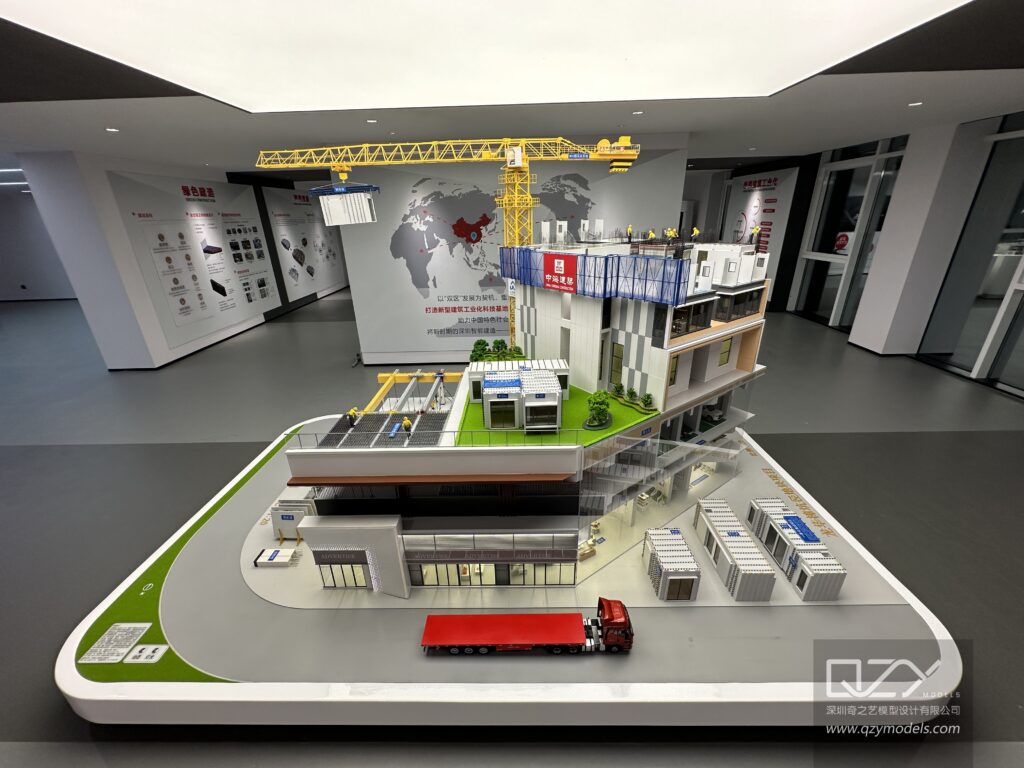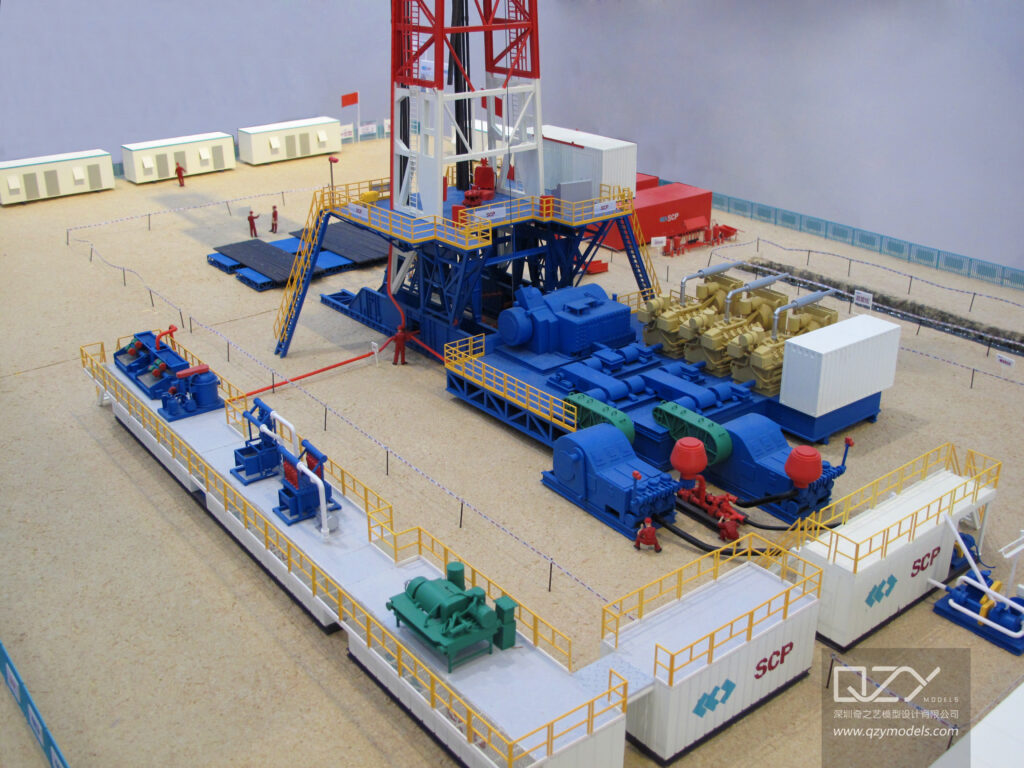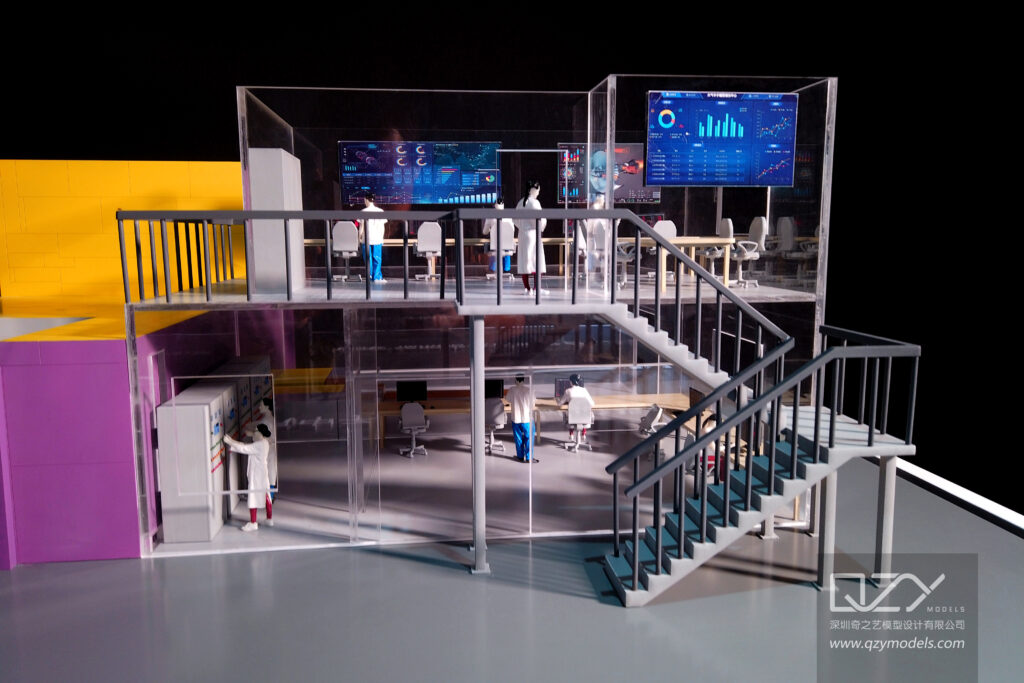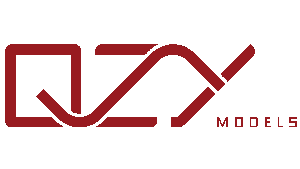Industrial Models: Precision Engineering and Realizing Industrial Concepts
Industrial models play a pivotal role in the world of manufacturing and product development. These highly specialized models are essential for conceptualizing, refining, and validating industrial designs before they are transformed into fully functional products. From engineering prototypes to production line simulations, industrial models provide invaluable insights that streamline processes, optimize efficiencies, and drive innovation in various industries.

I.Prototyping and Iterative Design: Advancing Industrial Concepts
In the realm of industrial models, prototyping and iterative design are paramount. This chapter explores how rapid prototyping technologies like 3D printing revolutionize the development process, enabling engineers to quickly iterate through multiple design versions and identify potential improvements efficiently. The focus is on functional testing and the cost and time optimization benefits achieved through this iterative approach.
A.Rapid Prototyping: Streamlining Product Development
Rapid prototyping has emerged as a game-changer in industrial model making. By employing advanced 3D printing techniques, engineers can bring design concepts to life rapidly and precisely. This section delves into the various rapid prototyping methods used in industrial model creation, highlighting their benefits in accelerating the development process and facilitating design iterations.
B.Functional Testing: Validating Performance and Reliability
Functional testing is an integral part of industrial model development. Engineers subject these models to rigorous testing, evaluating their performance under real-world conditions. This section explores the significance of functional testing in ensuring that the final product meets quality standards and user expectations.
C.Cost and Time Optimization: Gaining a Competitive Edge
The iterative design process driven by industrial models significantly reduces development costs and shortens time-to-market. Manufacturers can rapidly respond to market demands, gain a competitive edge, and improve overall profitability. This section highlights the cost and time optimization benefits achieved through rapid prototyping and iterative design.
II.Manufacturing Line Simulation: Enhancing Production Efficiency
Industrial models serve as virtual production lines, where manufacturers can analyze and optimize workflow to maximize efficiency. This chapter delves into how manufacturing line simulations play a pivotal role in identifying bottlenecks, streamlining processes, and enhancing overall production efficiency.
A.Virtual Production Line: Enhancing Workflow and Efficiency
Manufacturing line simulations utilizing industrial models offer a comprehensive view of the production process. Manufacturers can assess the flow of materials, identify potential inefficiencies, and optimize the entire production line for maximum productivity.
B.Ergonomic Assessments: Ensuring Safe and Efficient Workspaces
Ergonomic evaluations using industrial models help manufacturers create safer and more efficient workspaces. This section explores how these assessments lead to better work environments and increased productivity among workers.
III. Concept Visualization: From Idea to Reality
In this chapter, the focus shifts to how industrial models aid in visualizing complex engineering concepts and designs. The visual representation of intricate technical specifications facilitates effective communication among stakeholders.
A.Visualizing Complex Designs: Enhancing Communication
Industrial models provide tangible representations of intricate engineering concepts, enabling effective communication among engineers, designers, and clients. This section emphasizes how the visual aids enrich discussions and foster a shared vision of the final product.
B.Client Presentations: Making an Impactful Impression
Client presentations gain a new dimension when industrial models are utilized. This part explores how these models enable clear demonstrations of design features, functionality, and potential product variations, instilling confidence in clients and fostering collaborative decision-making.

IV.Market Testing and Consumer Feedback: Shaping Successful Products
Market testing and gathering consumer feedback are crucial in shaping successful industrial products. This chapter focuses on how industrial models facilitate market research and lead to consumer-driven product refinements.
A.Focus Group Testing: Gathering Valuable Insights
Industrial models are instrumental in conducting focus group testing, where potential consumers provide valuable insights and feedback. This section highlights the role of industrial models in understanding market demands and aligning the final product with consumer preferences.
B.Iterative Refinement: Creating Customer-Centric Products
Consumer feedback drives iterative refinements of industrial models, ensuring that the final product caters to the needs and desires of the target audience. This part explores how iterative design based on consumer feedback leads to the creation of customer-centric products.
V.Industrial Training and Skill Development: Building Competency
Industrial models have an additional application in training and skill development. This chapter delves into how industrial models serve as training modules for new employees and aid in skill enhancement for experienced professionals.
A.Training Modules: Developing Expertise in a Risk-Free Environment
New employees can gain valuable hands-on experience by training with industrial models. This section discusses how these models create a risk-free environment for skill development, allowing newcomers to learn industrial processes and machinery operation effectively.
B.Skill Enhancement: Hone Expertise for Proficient Professionals
Experienced professionals can enhance their skills through practice on industrial models. This part emphasizes how continual skill development enables professionals to master advanced techniques and optimize intricate industrial processes.
VI.The Future of Industrial Models: Embracing Digital Twins and Virtual Reality
As technology continues to advance, the future of industrial models lies in the integration of digital twins and virtual reality (VR) technologies. Digital twins are virtual replicas of physical assets, allowing real-time monitoring, data analysis, and predictive maintenance. This technology enables manufacturers to simulate and optimize industrial processes in a virtual environment, leading to enhanced efficiency and reduced downtime.
A.Digital Twins in Industry:
Digital twins play a vital role in industrial applications, providing insights into equipment performance, production processes, and resource utilization.
B.Virtual Reality in Training:
Virtual reality is revolutionizing industrial training, allowing employees to practice complex tasks and scenarios in a simulated environment, fostering better skill development and safety awareness.
C. Predictive Maintenance:
Digital twins enable predictive maintenance, as real-time data from sensors and simulations help identify potential issues before they escalate, ensuring uninterrupted production and cost savings.
D. Smart Factories:
The integration of digital twins and virtual reality technologies in smart factories will pave the way for increased automation, optimization, and synchronization of manufacturing processes, leading to higher productivity and quality.

Discovering the World Through Miniatures – About Us
QZY Models, founded in 2013 in Shenzhen, China, is a leading professional team specializing in the design and production of customized physical models.
Rooted in the architecture industry, QZY Models caters to diverse model production needs, ranging from furniture, interior design, architectural landscape, to urban planning. Moreover, we are continuously exploring various fields, including dynamic mechanical models, industrial equipment displays, scientific and technological principle displays, and exhibition displays, to create a diverse model service ecosystem.
Since commencing our independent business in 2013 and establishing our base in Shenzhen, ensuring quality has always remained our top priority. We have forged strong collaborations with renowned companies in over ten countries, such as the United Kingdom, the United States, Canada, and Singapore. Our completed projects span across China, the United Arab Emirates, Saudi Arabia, Egypt, Poland, Morocco, Ethiopia, and other countries.
Presently, QZY Models has established branches or offices in Egypt, Morocco, Saudi Arabia, Lebanon, Italy, the Netherlands, and other locations, firmly committed to serving global customers.For more information, please visit our official website: www.qzymodels.com
















